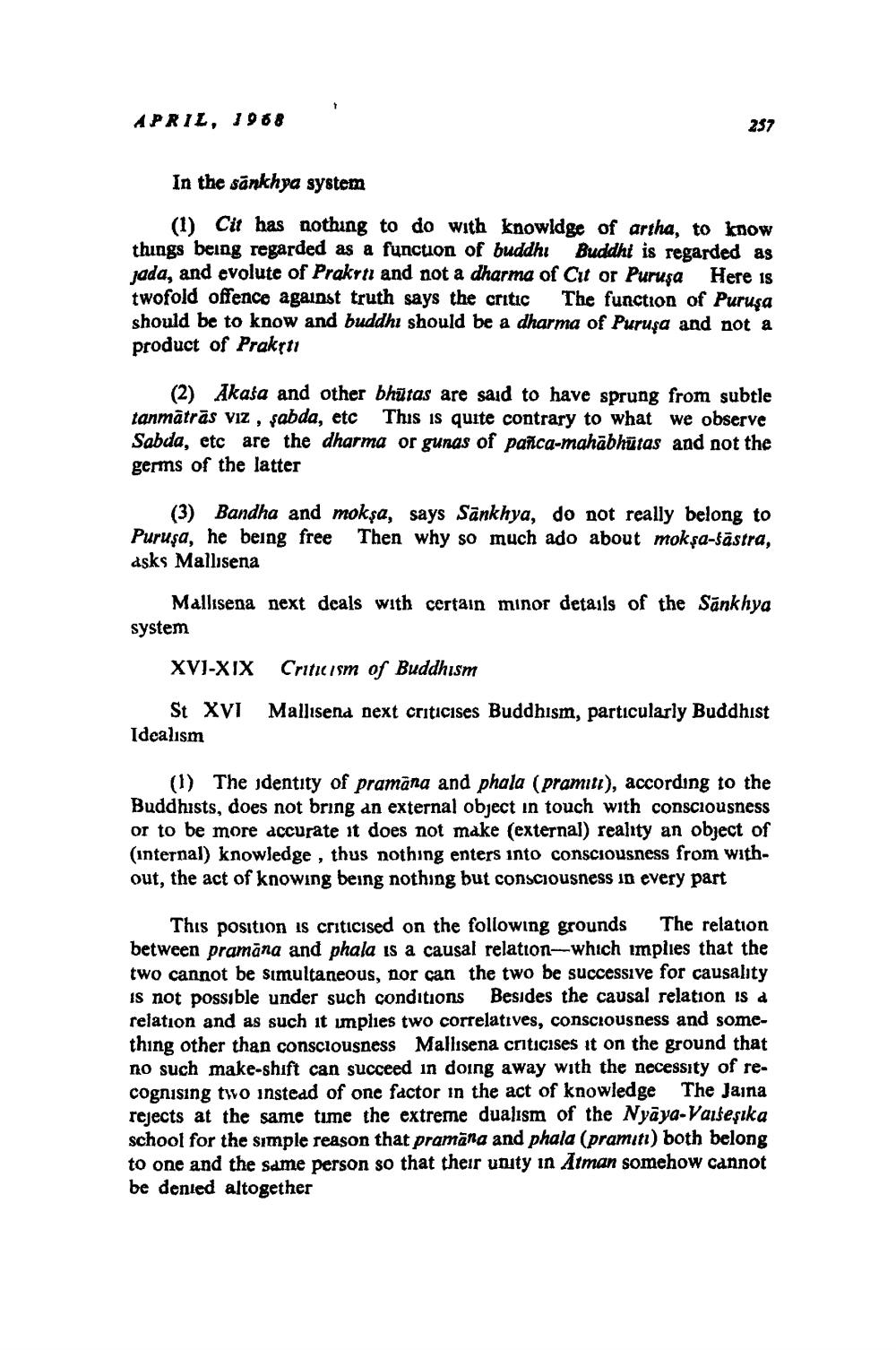________________
APRIL, 1968
In the sankhya system
(1) Cit has nothing to do with knowldge of artha, to know things being regarded as a function of buddhi Buddhi is regarded as jada, and evolute of Prakrti and not a dharma of Cit or Puruşa Here is twofold offence against truth says the critic The function of Puruşa should be to know and buddhi should be a dharma of Puruşa and not a product of Prakti
(2) Akasa and other bhütas are said to have sprung from subtle tanmātrās viz, şabda, etc This is quite contrary to what we observe Sabda, etc are the dharma or gunas of pañca-mahābhūtas and not the germs of the latter
257
(3) Bandha and mokşa, says Sankhya, do not really belong to Puruşa, he being free Then why so much ado about mokşa-sastra, asks Mallisena
Mallisena next deals with certain minor details of the Sankhya
system
XVI-XIX
St XVI Idealism
Criticism of Buddhism
Mallisena next criticises Buddhism, particularly Buddhist
(1) The identity of pramana and phala (pramiti), according to the Buddhists, does not bring an external object in touch with consciousness or to be more accurate it does not make (external) reality an object of (internal) knowledge, thus nothing enters into consciousness from without, the act of knowing being nothing but consciousness in every part
This position is criticised on the following grounds The relation between pramāna and phala is a causal relation-which implies that the two cannot be simultaneous, nor can the two be successive for causality is not possible under such conditions Besides the causal relation is a relation and as such it implies two correlatives, consciousness and something other than consciousness Mallisena criticises it on the ground that no such make-shift can succeed in doing away with the necessity of recognising two instead of one factor in the act of knowledge The Jaina rejects at the same time the extreme dualism of the Nyaya-Vaiseşika school for the simple reason that pramana and phala (pramiti) both belong to one and the same person so that their unity in Atman somehow cannot be denied altogether




